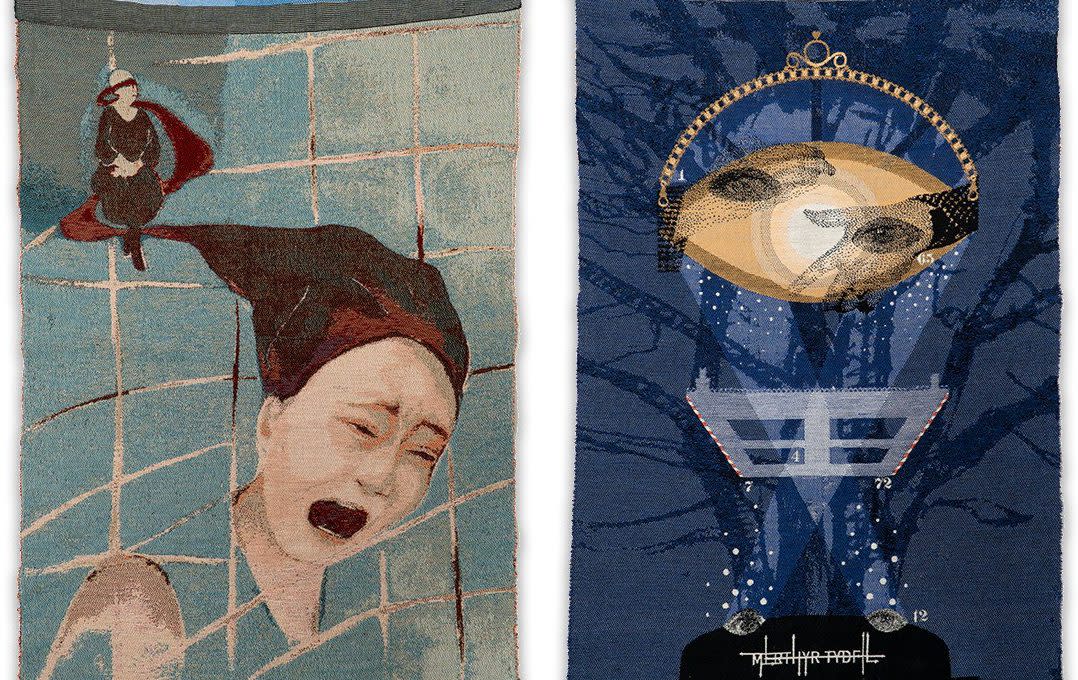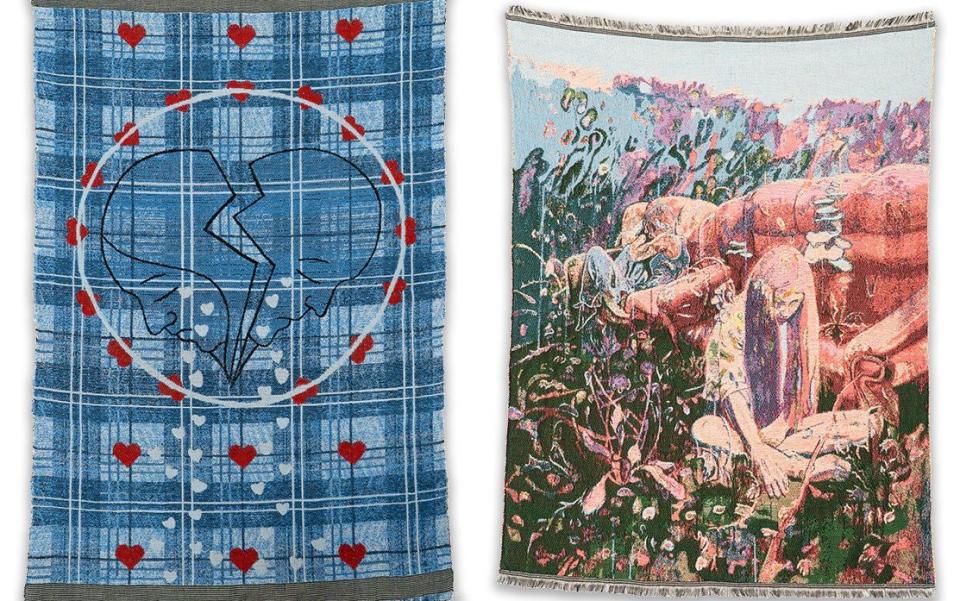'Upsetting' Covid inquiry memorial tapestry given trigger warning

The Covid inquiry has issued a trigger warning during the unveiling of an enormous memorial tapestry as full hearings finally began on Tuesday.
The first four panels of the tapestry were unveiled at the hearing centre in Dorland House, Paddington.
The inquiry said that the tapestry hoped to capture experiences and emotions of people during the pandemic but warned it “contains upsetting material and may trigger some difficult feelings and emotion”.
Each panel is based on an illustration by a different artist, following conversations with individuals and communities impacted in different ways by the pandemic. The first panel “Broken Hearts” is a collaboration between artist Andrew Crummy and the Scottish Covid Bereaved group and hopes to express the grief and sadness felt by so many at the loss of loved ones.
The second panel “Little Comfort” was created by Daniel Freaker and represents his and others’ experiences of Long Covid.

Other panels include “Eyes Forced Shut” created by Catherine Chinatree which explores the disempowerment and loss of freedoms experienced by patients and their relatives in care homes and “The Important Thing Is That You Care” was created by artist Marie Jones grieving the loss of her father.
While the inquiry hopes the tapestry, curated by Ekow Eshun, will be a fitting commemoration, some bereaved families criticised it as “tokenism”.
Fran Hall, who lost her husband, Steve Mead, to Covid when he was 65, said at a demonstration outside the hearing centre: “It’s just tokenism. I think if it had been combined with us being allowed to give evidence on a daily basis then it might have had more of an impact.”
Lorelei King, whose husband died in a care home to Covid aged 72, added that compared to the Covid memorial wall in London’s South bank, which is a third of a mile long, the tapestry “doesn’t go far enough” in commemorating the bereaved.
Inquiry hears from bereaved families
More than two years after it was first announced, the inquiry’s first full hearing on Tuesday heard from families who lost loved ones to coronavirus during the pandemic.
Baroness Hallett, the inquiry chair, introduced the 17-minute film which she said may “trigger some difficult feelings and emotions” and some families were so moved they had to leave the room.
Videos were played showing people telling their stories and describing how their family members had died alone or had been rushed to hospital.
One woman cried as she told how her father had died but then, just a few days later, her sister also died. She said she suffered guilt over the way they had died.
Another woman said she had “lost everything”, while others described suffering anxiety.
People also told how they had not hugged each other at family funerals because they were sticking to Covid social distancing rules laid down by the Government.
The hearing also heard that people could not be buried in outfits chosen by families because body bags had to remain sealed.
‘Their loss will be recognised’
Lady Hallett said those who suffered in the pandemic will “always be at the heart of the inquiry”. “I have promised many times that those who suffered hardship and loss are and will always be at the heart of the inquiry,” she said.
“And I have done my very best within the constraints upon me of time, resources and my terms of reference to fulfil that promise.
“I know that there are those who feel that the inquiry has not sufficiently recognised their loss or listened to them in the way that they feel appropriate but I hope that they will better understand, as the inquiry progresses, the very difficult balance I have had to strike.
“I hope they will understand when they see the results of the work we are doing that I am listening to them.
“Their loss will be recognised.”

 Yahoo News
Yahoo News 
